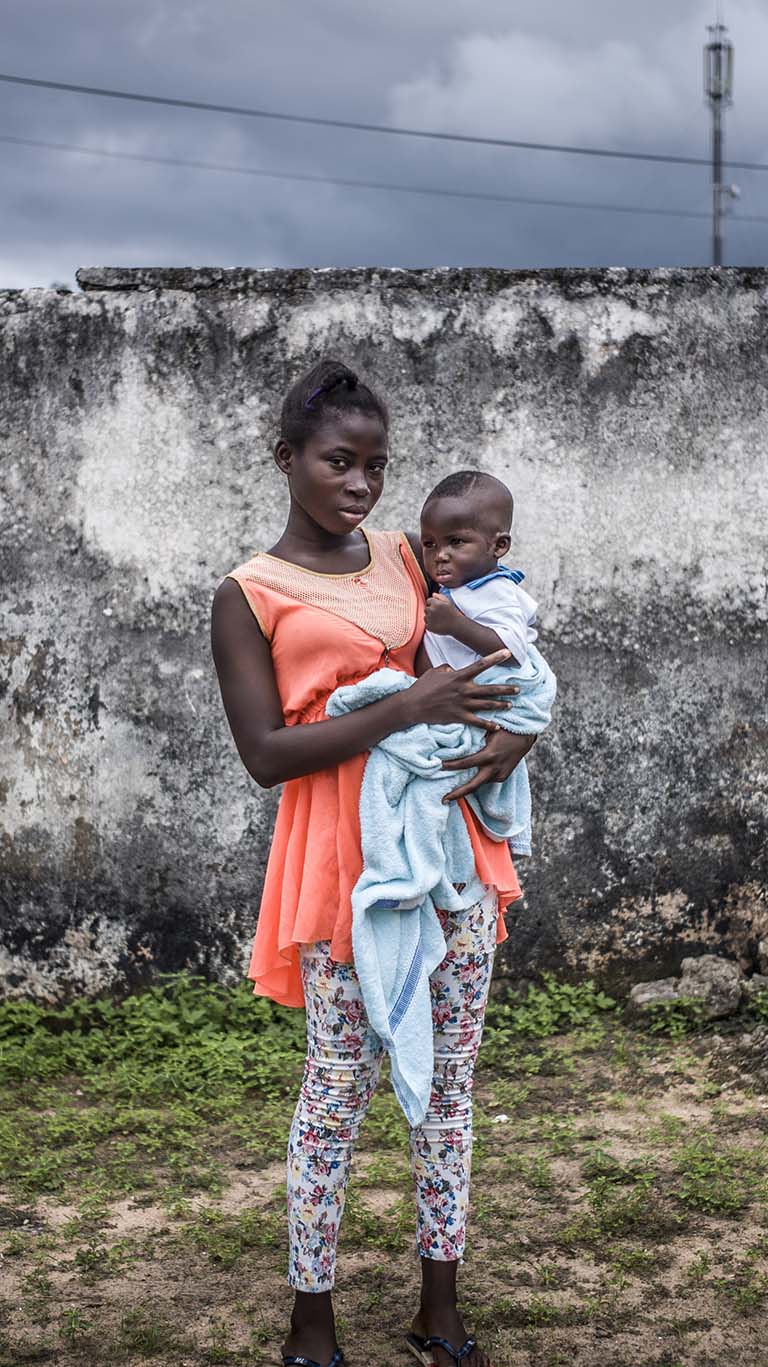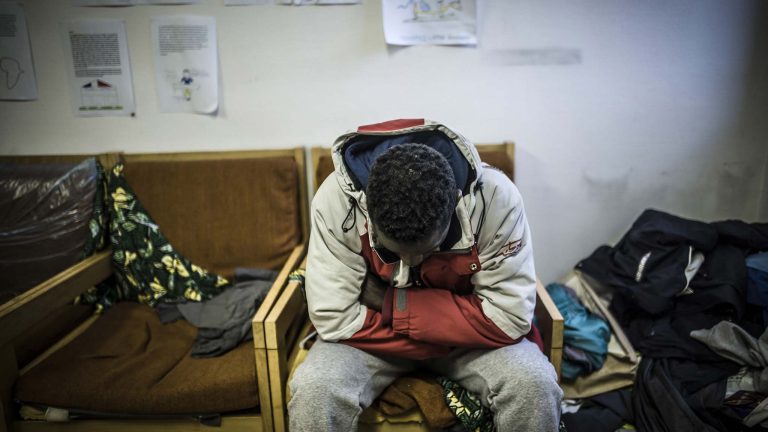MILITANCY
TRANSPARENCY
INDEPENDENCE

Vulnerable childhood
© Olivier Papegnies
Since its creation, Médecins du Monde has addressed the health needs of people under the age of 18. For many years, we have been an approved adoption body and have supported numerous children and families, ensuring that their fundamental rights are upheld.
VIOLATIONS OF THE RIGHTS OF MINORS
DISTRESSING FINDINGS
In the course of our work, we are often confronted with children whose rights and physical and mental integrity are violated. There are specific health determinants of this population, and we bear witness to the obstacles that they encounter when accessing healthcare:
- Financial and social barriers
- Difficulties relating to a lack of information or legislation
OUR OBLIGATION
As a medical organisation fighting for access to health rights for all, particularly for those in vulnerable situations, we need to address inequalities in access to health rights for those under the age of 18, who are even more vulnerable.
GUARANTEEING ACCESS TO HEALTH RIGHTS FOR MINORS
Some of our projects specifically support minors, particularly in France. Across all our projects, we often encounter children and teenagers:
- In emergency situations, during the migration journey;
- Living in indecent conditions;
- During our work with people who use drugs and sex workers;
- In projects on access to sexual and reproductive rights and health.
Whatever the context, we always strive to identify the social determinants of health specific to these groups and we adapt our projects, tools and strategies to their realities.
To respond to their specific needs, we fight so that the rights of the child are recognised. We also strive to build minors’ capacity to be involved in their own health pathway by encouraging their empowerment.
We thus adopt a two-pronged approach to harm reduction and child protection.
PREVENTING AND MANAGING UNWANTED TEENAGE PREGNANCIES
OUR COMMITMENTS
Médecins du Monde is committed to fighting for sexual and reproductive health rights, and works by supporting holistic, accessible and high quality healthcare for the most vulnerable groups. Médecins du Monde advocates for:
- the right of people to access appropriate health services;
- the removal of legal restrictions and barriers to safe abortion.
CONTRACEPTION
Unwanted teenage pregnancies, many of which are due to a lack of access to safe and effective contraception, are a real public health issue. In many cases they result in unsafe abortion, which in turn results in high morbidity and mortality.
To help prevent unwanted teenage pregnancies, Médecins du Monde projects ensure the availability in health facilities of a range of contraceptive methods and appropriate information promoting informed choice, effectiveness, equity and non-discrimination. This is done while respecting the privacy of adolescent girls on the one hand and ensuring that the community is aware of the availability of contraceptives for all on the other.
SUPPORT
The type of support provided for an unwanted pregnancy will depend primarily on the teenager’s own choice. It will involve either supporting her with the pregnancy and thus providing antenatal care and psychosocial support or enabling her to be able to access services to terminate the pregnancy.

© Olivier Papegnies
One programme in Rouen is working to ensure access to healthcare for unaccompanied minors.
SUPPORTING UNACCOMPANIED MINORS
THE IMPACT OF MIGRATION ON YOUNG PEOPLE.
Migration involves profound life changes that can be all the more complicated for children and teenagers. In addition, the transition from childhood to adulthood is a difficult period of life for many, and the mental health of the young person can be cruelly impacted when is accompanied by a violent break with their origins, culture and mother tongue.
DEDICATED ACTIVITIES.
Specific activities have been developed to promote the well-being and overall health of unaccompanied minors. In Paris, for example, collective “Speech & Prevention” workshops have been developed to:
- Provide health information
- Prevent high-risk behaviours
- Provide information about medical and social services, and the various resources in the city
- Strengthen young people’s psychosocial skills
- Identify psychological suffering
DEALING WITH VIOLENCE AGAINST CHILDREN IN CRISIS SITUATIONS
ADOLESCENCE IS SYNONYMOUS WITH RISK.
In humanitarian contexts, minors and girls in particular may be at risk of gender-based violence due to their age and sex. Risk factors are concentrated at certain stages of the life cycle, such as adolescence. Teenage girls are thus more likely to be exposed to sexual violence and forced marriage.
CORRELATION WITH VIOLENCE.
Some risk factors are common to gender-based violence and violence against children. For example, violence against minors and violence against women often intersect within the family. Both types of violence are indeed based on common social norms in which men control women, girls and boys.












